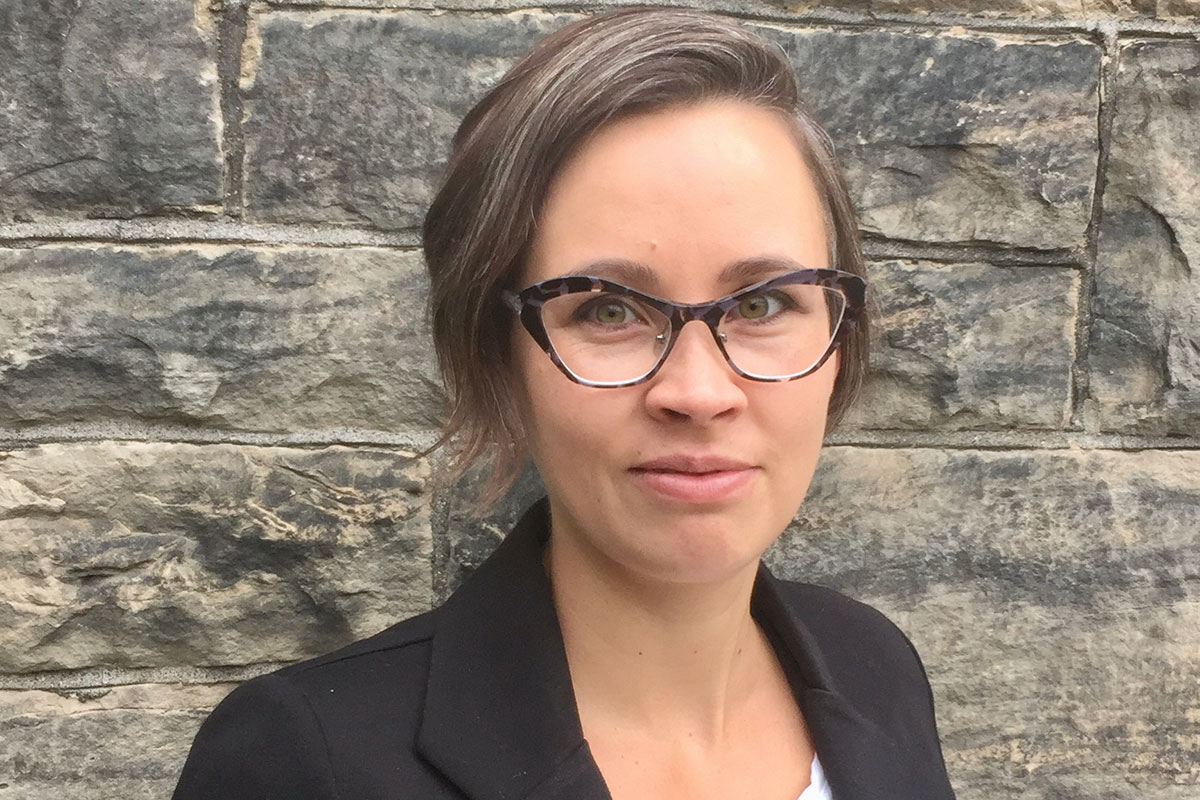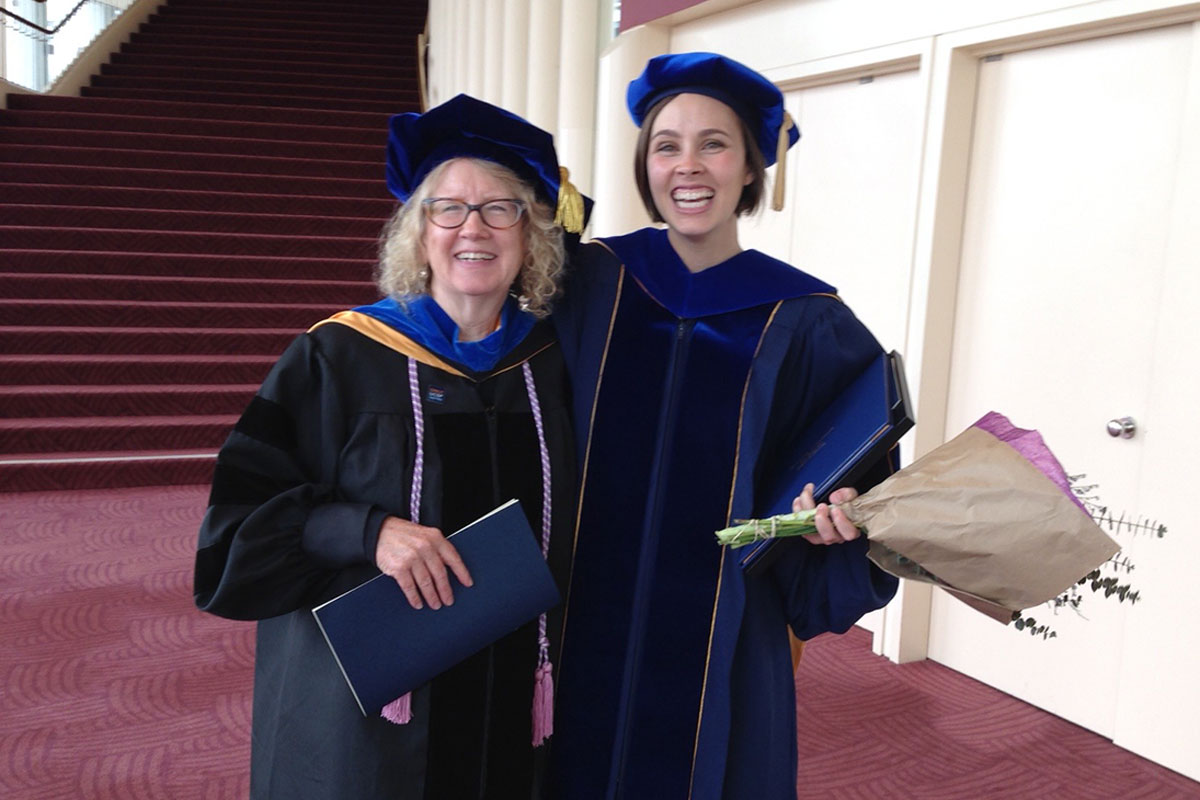
Quinn Grundy
When Quinn Grundy’s father had hip replacement surgery in 2016, she was curious to know whether the sales representative from the medical device company that made the hip implant would be in the operating room with him.
Grundy explained, that during the course of her PhD research,“I was shocked to learn this often happens, especially how routine it is.”
It turned out that the sales representative was indeed present during her father’s operation.
Grundy wrote her PhD dissertation on how health care companies circumvent public and regulatory scrutiny by forging relationships with nurses while in the UCSF School of Nursing. It was the first in-depth U.S. study that examined registered nurses’ experiences of interacting with the medical industry and how those interactions shape cost and quality dynamics in health care. She earned her PhD degree in 2015, and received the school’s Distinguished Dissertation Award in Nursing for her work on the relationships between nurses and medically related industry.

She was researching and writing her book, “Infiltrating Healthcare: How Marketing Works Underground to Influence Nurses,” and was undertaking a postdoctoral fellowship at The University of Sydney when her father had the surgery with the medical device representative present. Some surgeons prefer having the company representatives nearby, she says, because it helps expedite surgery and can make it safer.
“Surgeons tend to stick with the equipment of the company that they work with,” Grundy said, in part because it’s familiar and may be something they trained with when their career started.
When sales representatives take on education or support roles, commercial incentives may compete with public health interests, Grundy says. Doctors, nurses, hospitals and others who make decisions in the medical field can be swayed to buy and use medicines and medical devices that may not always be the best, she added.
The previous practice of treating doctors to paid vacations or gifts served as an inducement to prescribing higher-priced, brand name medicines, Grundy says. Such practices are now forbidden, so pharmaceutical companies and medical device makers have taken another route: marketing to nurses.
Nurses are the perfect target for marketing as they wield a great deal of influence within hospitals, yet their work and decision-making power is often invisible. And hospitals have outsourced a significant amount of education and support activities to industry, so nurses often must interact with sales representatives as part of their jobs, Grundy says. In her book, Grundy describes ways that nurses can be aware of, and resistant to, the influence of companies’ marketing tactics.
Grundy chose the UCSF School of Nursing because the school has an excellent reputation for nursing PhDs, especially in policy research. Grundy trained with professor emerita Ruth Malone, PhD, RN, FAAN.
Grundy is an Assistant Professor with the Lawrence S. Bloomberg Faculty of Nursing at the University of Toronto. In addition to teaching, she continues research in industry influence in health and health care. Nurses, she says, have a lot to offer in this area.
“Nurses can bring a lot to health research because we have unique experiences,” she said. “Nursing is only going to have more and more power in the health system.”

PhD '23, MS '10
PhD '21, NP
